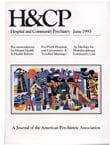Posttraumatic Stress Disorder in U. S. and Russian Veterans
Abstract
Recent cross-national studies of post traumatic stress disorder have added significantly to our understanding of the impact of stressful life events such as wartime experiences on the adaptation of traumatized individuals (1-3,10). Future clinical research should give serious consideration to several issues. First, cultural bias and its influence on the perceptions of both persons and events should be carefully considered when assessing the impact of stressful life events. Second, the effects of life changes, such as marriage and divorce, on the etiology and onset of a psychiatric disorder should be examined.
Third, the full range of psychological components of well-adjusted survivors of trauma should be examined. Fourth, the effects of the clustering of stressful events should be investigated; the cumulative burden of stressors may lead to decompensation and symptoms of PTSD. Finally, biological and cognitive variables and personality characteristics that affect adaptation should be examined to determine what factors make a person more or less vulnerable to traumatic life experiences.
Access content
To read the fulltext, please use one of the options below to sign in or purchase access.- Personal login
- Institutional Login
- Sign in via OpenAthens
- Register for access
-
Please login/register if you wish to pair your device and check access availability.
Not a subscriber?
PsychiatryOnline subscription options offer access to the DSM-5 library, books, journals, CME, and patient resources. This all-in-one virtual library provides psychiatrists and mental health professionals with key resources for diagnosis, treatment, research, and professional development.
Need more help? PsychiatryOnline Customer Service may be reached by emailing [email protected] or by calling 800-368-5777 (in the U.S.) or 703-907-7322 (outside the U.S.).



